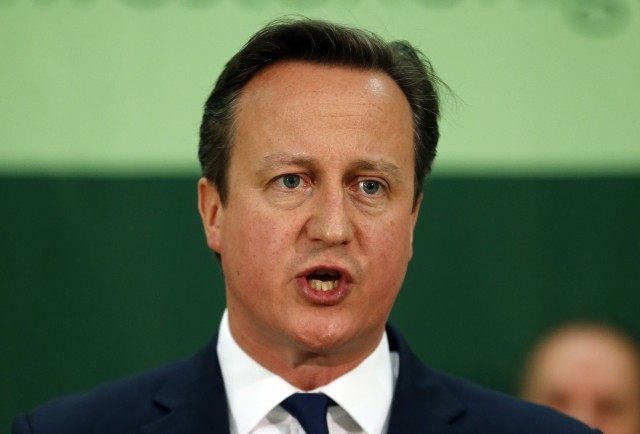David Cameron will today meet leaders at an EU summit discussing how the Union can cooperate with “independent and sovereign” nations closely allied to, but not part of the EU, and will attempt to force change in the UK’s relationship with the European bloc.
Arriving in Riga, the capital of Latvia, the Prime Minister will argue his historic achievement of increasing his commons majority a fortnight ago means the people of Britain have given him a mandate to seek a new path for the United Kingdom within the European Union. Despite the continuing success of UKIP, including a historic election result in which they took one in seven of all ballots cast, Europhile Cameron is not expected to advocate Britain leaving the EU – even if his renegotiations fail.
Despite his shopping list of desires, including limiting the freedom of movement within the European Union, and restricting the access to benefits for recently arrived migrants, it is likely other European Union leaders will have little time to listen to discuss them. On the table at the summit is the future of the EU’s Eastern Partnership with former Soviet States Armenia, Azerbaijan, Belarus, Georgia, Moldova, and Ukraine, all of which the Union is keen to wrench away from Moscow.
Germany also has other urgent business to attend to during the two day summit, with chancellor Angela Merkel concentrating her time on trying to “reach an agreement” with Greece over their debt repayments, and bailout funds. If Greece defaults on its payments, it could crash out of the Euro – something European leaders are desperate to avoid.
For many, the renegotiation and coming referendum over Europe increasingly appears to be leading Britain to a lose-lose situation. As Britain attempts to claw back a little independence from Europe, and much rhetoric surrounding Brexit supports the UK becoming a strong voice in the world, perceptions abroad are changing to show Britain as an increasingly insular nation, partly thanks to a reluctance to get stuck in abroad after Iraq and Afghanistan.
Writing in the Washington Post, Fareed Zakaria opines recent budget-balancing cuts to the Foreign Office, and significant cuts to the armed forces, have seriously undermined Britain’s position in the world. Quoting the International Institute for Strategic Studies, Zakaria remarks: “over the past five years ‘the 8 percent to 9 percent decrease in the U.K. military defense budget . . . has led to a 20 percent to 30 percent reduction in conventional capability’. No wonder, then, that Britain has been a minor, reluctant ally in the airstrikes against the Islamic State”.
Although he qualifies his statement by stating that among European nations, the UK is the best of a bad bunch, Zakaria castigates the last Coalition government for being timid in foreign affairs and barely spending the two per cent NATO requirement on defence budgets.
This withdrawal of the UK into a more insular posture isn’t something Zakaria relishes. As he remarks, the world is poorer for it: “Why does this matter? Because on almost all global issues, Britain has a voice that is intelligent, engaged and forward-looking.
“It wants to strengthen and uphold today’s international system — one based on the free flow of ideas, goods and services around the world, one that promotes individual rights and the rule of law… the inward turn of the United Kingdom is a tragedy not just for it but for all of us”.

COMMENTS
Please let us know if you're having issues with commenting.